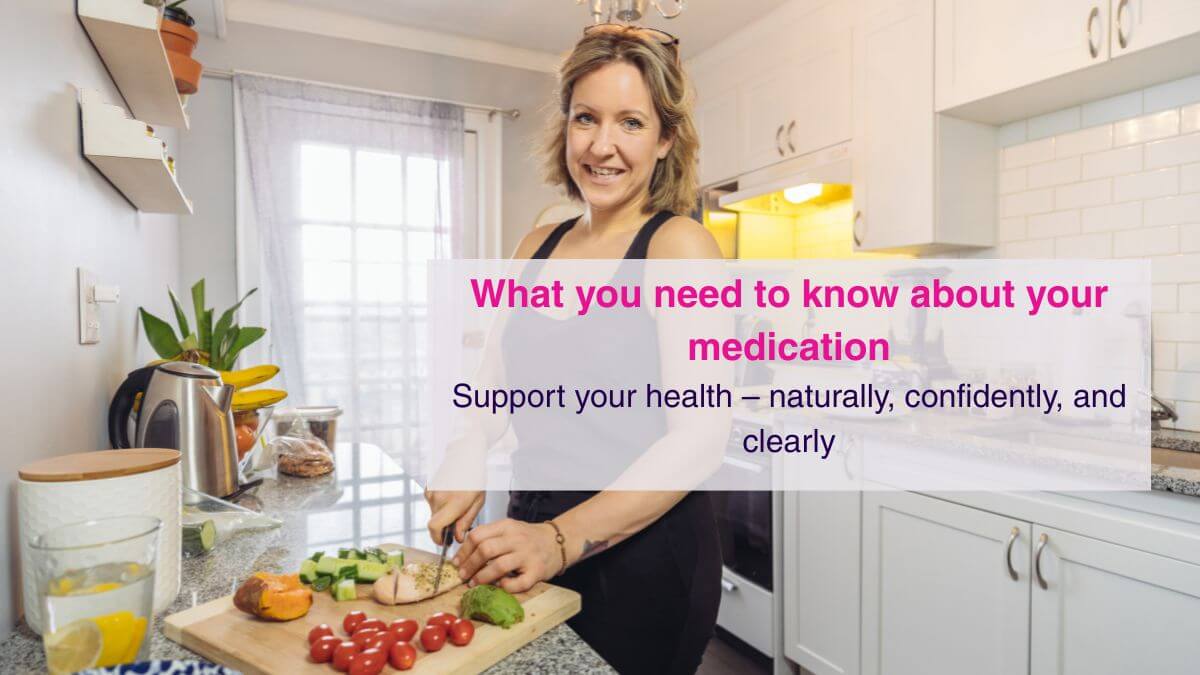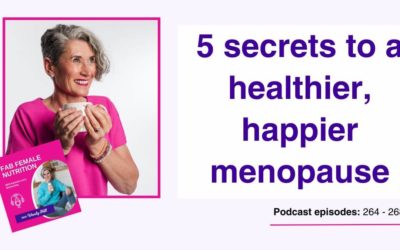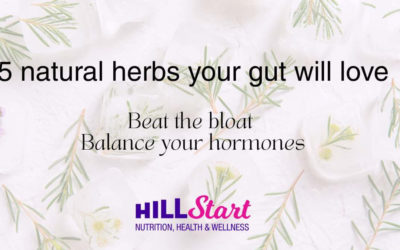If you’ve ever left the doctor’s surgery with a prescription and more questions than answers, you’re not alone. This article explores four of the most commonly prescribed medications in midlife – statins, metformin, PPIs and antibiotics – and offers simple, practical ways to support your body while taking them.
- Statins – Used to lower cholesterol, but it’s important to understand the different types and how lifestyle changes can support heart health too.
- Metformin – Commonly prescribed for blood sugar balance, but can come with side effects that good nutrition can help reduce.
- PPIs (e.g. Omeprazole) – Helpful for heartburn and reflux, though long-term use may impact nutrient absorption and gut health.
- Antibiotics – Often essential, but they can disrupt your gut bacteria — so support your microbiome during and after use.
Understanding Statins and Cholesterol
Statins are some of the most commonly prescribed medications in the UK, especially for midlife adults. They work to lower cholesterol and reduce the risk of heart disease, but there’s more to the story than just ‘good’ and ‘bad’ cholesterol. Understanding how cholesterol behaves in the body, and how to support it through food and lifestyle can make a real difference, whether you’re on medication or not.
The truth about Cholesterol: LDL, HDL and what your GP sees
When you’re told your cholesterol is “high”, that usually refers to your total cholesterol – a figure made up of both LDL (often labelled ‘bad’) and HDL (‘good’) cholesterol, plus triglycerides. What many people don’t realise is that not all LDL is dangerous, and HDL is actually protective. It’s about the balance, not just the number. Cholesterol naturally rises as we age, and for some people – especially those with familial high cholesterol – levels may be harder to control.
Statins block an enzyme involved in cholesterol production in the liver, helping bring total cholesterol down. But it’s still essential to address the root causes, like stress, inflammation, and poor dietary choices – which also impact heart health.
Food first: Natural ways to support your heart
If you’re not on statins yet, or want to support your body while taking them, there’s a lot you can do. Eating more fibre-rich foods (like oats, beans and lentils), cutting down on ultra-processed foods, and increasing colourful veg can all help. Plant sterol supplements have been shown to reduce cholesterol absorption in the gut please seek the advice of a specialist before if you are on any medication Several of my clients with long-standing high cholesterol have chosen to try these first, and many have avoided needing medication so far.
For those already taking statins, it’s worth noting they can reduce levels of CoQ10 – a nutrient crucial for energy production in cells. Including foods like oily fish, spinach and whole grains helps, and a CoQ10 supplement may support energy levels and reduce the achy side effects some people report. Our wonderful podcast sponsors include this in their Revive Active blend – link below
To listen to this podcast episode released on 4th June click the link below
Insulin and Metformin
Metformin is a go-to prescription for Type 2 diabetes, often handed out when blood sugar levels creep up. But understanding why those levels are rising and how to support your body beyond the prescription, is just as important for long-term health
How Metformin works, and what it doesn’t do
Metformin helps lower blood glucose by improving insulin sensitivity and reducing glucose production in the liver. It’s effective, affordable and has been used for decades. But it doesn’t fix the root issue – often insulin resistance caused by a combination of stress, poor sleep, sedentary habits and an over-reliance on processed carbs.
Metformin can also impact how well the body absorbs vitamin B12 – a nutrient vital for energy and nerve health – so checking B12 levels annually is a good idea, particularly if fatigue becomes an issue.
What you eat and how you live matters more than ever
Balancing blood sugar isn’t about cutting carbs completely. It’s about choosing the right ones, in the right combinations. Swapping white refined carbs for whole grains, adding protein to meals and snacks, and increasing fibre can all reduce glucose spikes and support insulin sensitivity. As well as reducing snacks, even if it feels like it’s healthy it probably isn’t.
Sleep and stress also play a surprising role as poor sleep increases cravings and disrupts hunger hormones, while chronic stress raises blood sugar in itself. Gentle exercise, regular meals, and small daily tweaks can all add up to real change, whether you’re on Metformin or not.
To listen to this podcast episode released on 11th June click the link below
What you need to know about PPIs
Proton Pump Inhibitors (PPIs) like omeprazole and lansoprazole are often prescribed to ease symptoms of acid reflux or heartburn. They work by reducing stomach acid – which sounds like a good thing, until we realise just how important that acid is for digestion and nutrient absorption.
PPIs can interfere with nutrient absorption
Stomach acid isn’t just there to cause heartburn – it’s essential for breaking down food and unlocking nutrients like magnesium, iron, calcium and vitamin B12. When stomach acid is suppressed for too long, the body may struggle to absorb these key nutrients, potentially leading to fatigue, muscle cramps, or even low mood over time.
If you’re on PPIs, it’s worth checking in with your GP about regular blood tests to monitor levels of these nutrients. You might also want to include more magnesium-rich foods like leafy greens, nuts and seeds – or consider a good-quality supplement to help bridge the gap.
Stomach acid isn’t the enemy
It’s tempting to think of stomach acid as the problem, but often the real issue is the function of the digestive system, not the acid itself. Stress, eating too quickly, or a poor diet can all impact how well we digest our food. Supporting the body’s natural digestive function – through mindful eating, gentle movement, and digestive bitters or enzymes where appropriate – can sometimes be a more sustainable approach than long-term medication.
To listen to this podcast episode released on 3rd January click the link below
What you need to know about Antibiotics
Antibiotics have saved millions of lives – no question. But they don’t come without side effects, especially for your gut. Understanding what they do (and how to recover well afterwards) is key to protecting your long-term health.
Antibiotics wipe out the good with the bad
While antibiotics are incredibly effective at killing harmful bacteria, they’re not very selective – which means they also disrupt the delicate balance of your gut microbiome. This can leave you more vulnerable to digestive issues, fatigue, low mood and even a weakened immune response in the weeks and months that follow.
To minimise the impact, there’s growing evidence to suggest taking a good-quality probiotic during your course (ideally at a different time of day), and continuing afterwards, can help protect your gut. Look for strains like Lactobacillus and Bifidobacterium, which are especially beneficial post-antibiotics.
Claude Bernard was right all along
In the 19th century, Claude Bernard, a key figure in nutritional science, argued that it’s not just the germ – it’s the terrain of the body that matters. In other words, a healthy internal environment is your best defence. While Louis Pasteur’s germ theory became the dominant medical model, Bernard’s insight remains hugely important today, especially in the world of nutrition.
Supporting your “terrain” – your gut microbiome – is vital. After antibiotics, think fermented foods like sauerkraut, kimchi, kefir and live yoghurt, as well as fibre-rich plants that feed the good bacteria. It’s not about bouncing back quickly – it’s about rebuilding with care.
To listen to this podcast episode released on 25th June click the link below
This article accompanies my June podcast series where I take a deeper dive into each of these common medications. You’ll find links to each episode above – so if a particular topic speaks to you, it’s easy to listen in.
A big thank you to Revive Active for sponsoring the podcast. I’m especially loving their MenoActive supplement right now – it’s packed with probiotics, digestive enzymes, magnesium, B vitamins and more to help midlife women feel balanced, energised and supported from the inside out. (see below for their links and a discount code for you).
And if you’re ready for some personalised support with your energy, hormones or gut health, I’d love to help. Whether you’re taking medication or trying to avoid it, we’ll create a plan that works with your lifestyle – no overwhelm, just small, powerful steps that make a real difference.
My links
A note about our sponsor
Revive Active, Ireland’s leading Super Supplement Brand, we are proud to have them as sponsors of this podcast as their formulas stand out as a powerhouse of premium ingredients, working together in perfect harmony to bring you optimum benefits.
Revive Active is committed to selecting components that not only enhance your vitality but also cater to your specific needs. Every ingredient is carefully chosen for its efficacy and is supported by rigorous scientific research. Revive Active believes in transparency. What you see on the label is what you get – no hidden ingredients or undisclosed fillers, binders, caffeine, or stimulants. Convenience meets effectiveness in every sachet, from radiant skin to boosted energy levels, each formula is designed to enhance your overall well-being.
My favourites from their range
REVIVE ACTIVE is a powerhouse of 26 active ingredients—your essential replenishment for what life takes out with the support of HERO ingredients like CoQ10 for cellular energy, Citrulline DL Malate to fight fatigue and support heart health, and L-Arginine for active blood flow.
Meet MASTERMIND, your brain’s secret weapon! This specially formulated supplement supports brain function with a potent mix of 7 vitamins, 1 mineral, Omega 3 DHA, Uridine, and Choline—all in one handy sachet. Enhance mental focus, and beat that mid afternoon slump without interfering with your sleep, this is your maximum productivity and focus tool. Plus, it’s Vegetarian, Gluten-Free, and Halal Certified.
BEAUTY COMPLEX, one of the award-winning super supplements, boasts 8 potent ingredients in one easy, convenient sachet. Featuring Type 1 Marine Collagen, Hyaluronic Acid, Phytoceramides and Biotin, the synergy of these HERO ingredients goes beyond aesthetics, aiming to reduce visible signs of aging and enhance your overall look and feel. Beauty, indeed, starts from within.
Embrace menopause fearlessly with MENO ACTIVE—a product backed by over two years of dedicated research. This unique blend of 31 active ingredients, including 12 vitamins, 7 minerals, 4 plant extracts, Omega 3 DHA and more, is designed to support you during this transformative journey of change. With a daily sachet and capsule, it’s a powerful combination to navigate the menopausal phase with ease. Meno Active is your empathetic companion for a smoother transition.
Join me and countless women who have made Revive Active an integral part of their daily routine, experiencing a positive impact on their health and overall well-being.
Want to know more about ways to work with me?
There are many ways that you can work with me to balance your hormones and improve your health and wellbeing.
On Facebook the Fab Female Nutrition Club is a wonderful FREE community where I offer lots of support and advice on female health and wellbeing. I also love to cook and create recipes and I’ll often be seen in the group cooking live and sharing all the wonderful health benefits of the ingredients used.
My Fab Female Nutrition Membership sits alongside the free club, but offers you lots of resources and group coaching with me. The hub has the full recipe book that is constantly being updated, the 5 elements of health containing resources and guides to help support you in your health journey. And 6 group coaching calls a year, plus access to other member benefits such as discounts from group programs.
A few times a year I work with groups of ladies to transform their health and wellbeing. Appropriately called The Transformation Program it can help with many differing issues and we have had hugely impressive results – including up to 100% reduction in symptoms. If you suffer with IBS, fatigue, inflammation, hormonal imbalances or just want to spend some time concentrating on your health and wellbeing they are fabulous value and great fun.
If you feel like you need a more bespoke option, then my 1:1 coaching and testing is for you. We will concentrate on your specific needs creating nutritional protocols that support your health goals. We take a full health history, then tailor testing to help create and refine protocols so that you learn about your body and how to support it. I will be with you every step of the way to guide you and ensure that you realise your true health potential. Find out more here.




